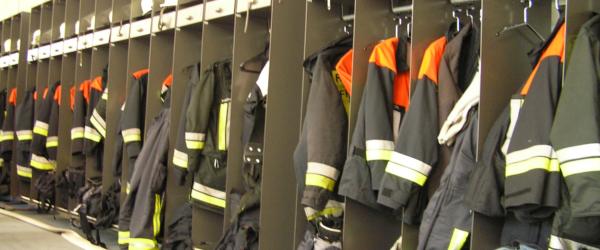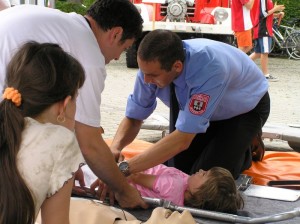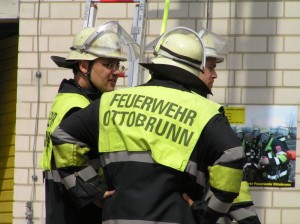Help! My Firefighter Team Is so Unmotivated
Motivated and committed operational units are essential to a volunteer fire department. But many supervisors don’t deal with the topic of motivation, which leads to many comrades continuously minimizing their commitment or leaving the fire department altogether.
A long, long time ago in wonderful firefighter Germany, the supervisors of the volunteer fire department were asked why there are people who become voluntary fire fighters. And the answers were truly honorable: they do it to serve the community, for the camaraderie, or because of their enthusiasm for technology. If you ask fire department supervisors in 2010 and get the same answer, you really have to wonder whether or not that person actually still believes this or has ever even seriously dealt with his team’s interests. After all, the above-mentioned reasons may be nice catchphrases for the press, but they are certainly far from the reality of it all.
So a fire department supervisor needs to try to fulfill the goals of his team. The question is: how do you even do that? You could start off with an anonymous questionnaire. The team members should just write down their three reasons for being firefighters. Because many of them actually believe in the altruism story, they should hear ahead of time what the real motivation usually is. Based on this questionnaire, a team’s interests can be summed up in groups. Here are a few examples of some possible interests:
The technology fans > They want to be experts in their field and have as much to do with technology as possible
The concept freaks > Want to research certain topics, learn many different things, and put a great concept down on paper
The organizers > Whether it’s a bbq or a Halloween party, the organizer wants to organize something big and get recognition for it
The firefighter freaks > Love everything that has to do with firefighting and read all kinds of trade magazines to know as much as they can
The social butterfly > A game of skat, a beer at the end of the day, or just a little get-together: The social butterfly shows up if he can chat.
And so on…
A supervisor is already one giant step ahead with this type of evaluation. Because now he can start to meet the goals of the individual interest groups, and he can do it in a way that the goals of the entire fire department are achieved, too.
Motivating the Team
It’s all been mostly theoretical up until now. Let’s take a look at an actual example. This is something most people are probably familiar with. It’s Sunday morning, and you have a demonstration at the opening of the new hardware store. The typical question arises: “There’s this event this coming Sunday. I need a group for it. Who has time?” When nobody answers, the tone of voice gets a little harsher. „Come on, guys, we’ve got 50 people now and can’t even get a little group together? That’s really weak.” And that’s how it goes, until the frustrated supervisor either gives up or the team feels obliged to get a group together. It makes a lot more sense to give the team the opportunity to achieve its personal goals and that I, the supervisor, simultaneously reach my own goals, too. This way, I can tell the technology freak that he can function as the new vehicle’s engineer all day and that he can even drive it. I tell the organizer that I need his organizational talent and that he, in spite of the time constraint, has to try and get everything organized in time. I inform the firefighter freaks that I need a professional group that will give a perfect performance in front of a critical audience, and the social butterfly freak will participate, too, because he knows he’ll be able to play a game of cards with his buddies. Now, the supervisor, has turned the tables on them. The team doesn’t have to participate in a demonstration simply because they’ll feel guilty if they don’t. But now everyone can actually do what he enjoys and what motivates him. Getting the team’s actual goals out of them like this means that the Sunday demonstration isn’t a chore for the comrades, but rather something they are excited to be participating in.
Scaring Off the Team
A fire department will have problems if the goals of the team are not only unknown, but if people are purposely or even unknowingly working against them. If concept freaks have great suggestions that don’t get implemented, if the technology enthusiasts are never allowed to drive a vehicle, and if the firefighter freaks aren’t getting challenging training… Do that for a while, and the members will get frustrated. I know several committed and talented firefighters who for that exact reason didn’t enjoy what they were doing anymore and started to drastically reduce their level of commitment.
So it is possible, maybe even necessary, to bring together the goals of the fire department with the goals of each individual firefighter. Only those fire departments that can achieve this will also have talented and motivated operational units in the long run. All other fire departments will have increasingly bigger problems with missing new blood and unmotivated firefighters. After all, altruism has been gone for a while.
What do you think? Do fire departments question teams with regards to their personal goals? And do these goals get fulfilled?
Tags: management, motivation




